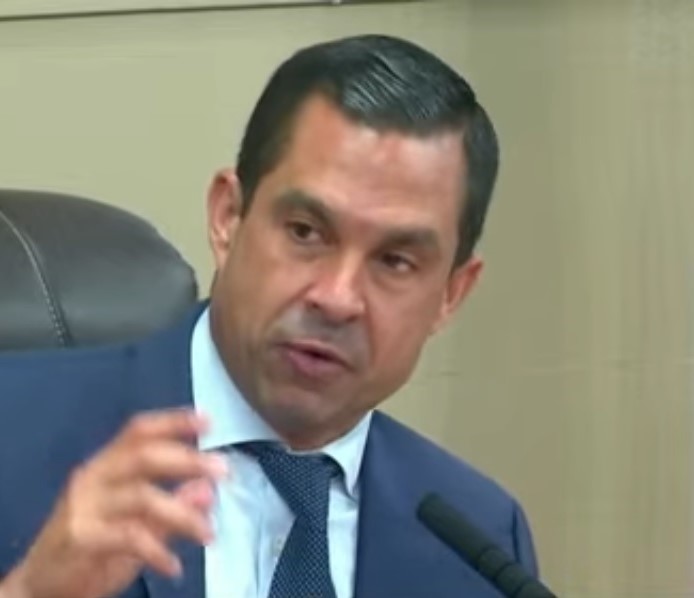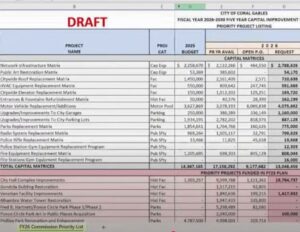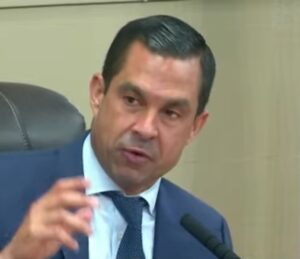The Coral Gables City Commission had been in session for nearly seven hours on June 10 before the meeting took an unexpected and potentially transformative turn. Prompted by a question from Mayor Vince Lago, Assistant Finance Director Paula Rodriguez confirmed that the city has $30 million in a dedicated enterprise fund that can only be used to improve its building permitting operations.
The figure drew visible surprise from commissioners. The money, legally restricted to services tied to the city’s Building Division, comes from years of accumulated permit and inspection fees. Because the Building Division operates as an enterprise fund, the revenue it generates is self-contained. It cannot be redirected for unrelated priorities such as parks or general services. And it must be used to directly enhance permitting.
The revelation landed with added weight given the city’s long-standing frustrations with the permitting process—a bureaucracy often criticized for delays, inconsistent communication and opaque procedures. For years, contractors, residents, and developers have voiced complaints. Commissions have pledged improvement, but tangible change has proven elusive.
This time might be different.
Window of political opportunity
Less than a month after helping defeat a permitting pilot proposal by his dais nemesis Commissioner Melissa Castro, Mayor Lago seized the moment. This time, he was the one calling for speed. He issued a public directive for Deputy City Manager Joe Gomez to return with a plan next month.
“Tell me what you need. You got it,” Lago said. “Let’s deliver something exceptional.”
In a city where political alliances have often dictated action or inaction, the timing raised eyebrows. After years of incremental talk, the mayor appeared newly energized, even giddy. He called for a permitting system so streamlined that staff would be left with nothing to do.
“This is what I do for a living. I depend on permitting,” he said. “There is no reason why we shouldn’t be able to deliver something spectacular.”
The commission, perhaps sensing a rare alignment of resources and momentum, expressed no objections. Lago invited input from all members and emphasized that the final plan should reflect shared ownership.
Why now? And what took so long?
The mayor’s enthusiasm was matched only by the public’s growing curiosity. If the $30 million has been sitting in the Building Division fund for years, why has it taken so long for leadership to act?
The fund has grown steadily as revenues from permit fees outpaced expenditures. The city has continued collecting money without scaling its systems or staff in proportion. The result: a windfall for a department in desperate need of modernization.
Yet the timing has raised questions. Did the mayor, who has been in office for 12 years, only recently learn about the fund? What about the city manager and finance staff? Why wasn’t the fund tapped sooner, especially given the years of public frustration?
The answers were not entirely clear. What is clear, however, is that the political calculus has changed. The April election gave Lago a more favorable commission dynamic. And the permitting reform push—with millions in dedicated funding and a mandate from the dais—now serves as both a policy priority and a political opportunity.
Setting a new standard
Lago described the existing permitting staff and software as “solid,” but insufficient without investment. He called for hiring new talent, training current employees, and modernizing tools. More than just operational reform, Lago envisioned a shift in culture and service.
“Let’s educate our amazing staff,” he said. “Let’s give them the tools to be successful.”
The mayor stressed customer service: faster plan reviews, real-time responses, and online accessibility. If the plan succeeds, Coral Gables could become one of the most efficient jurisdictions in South Florida—an appealing proposition for both business and political capital.
He proposed a target date of March 2026 (eight months before the next municipal elections) for full implementation, calling it “aspirational,” but achievable. The commission is expected to formalize the effort as a workshop item in July.
The study that wasn’t ready
The speed of the initiative raised logistical concerns. A study of the city’s permitting process, commissioned months ago, is not expected until December. Lago pressed Gomez to accelerate it—but also made clear that action shouldn’t wait.
This prompted unease: If the study isn’t ready, how can the city plan effectively? The sequence suggests a political clock may be ticking faster than the administrative one.
“We need to move,” Lago said.
But without the study, will the July plan be reactive instead of strategic? And how will the city ensure its spending aligns with user needs and best practices?
Politics still in the background
Lago insisted that not everything has to be about politics. But his recent moves—killing Castro’s pilot and then launching his own permitting overhaul weeks later—has raised eyebrows. The optics suggest a turf battle as much as a policy push.
The directive arrives at a pivotal moment. Recent commission meetings have been marred by political tensions, with members clashing over process and power. Permitting, long a bureaucratic punchline, now has the potential to unify.
Gomez will now lead planning, with input from staff, IT, and legal. Commissioners are expected to contribute ideas. Public feedback may soon follow.
If the city delivers, it will not just improve turnaround times. It could restore faith in a function of government that, for too long, has felt more obstacle than service. And, of course, permitting facilitates development.
As the mayor put it, “This is our chance.”






This Post Has 2 Comments
THANK YOU.
Keystone cops running the show.